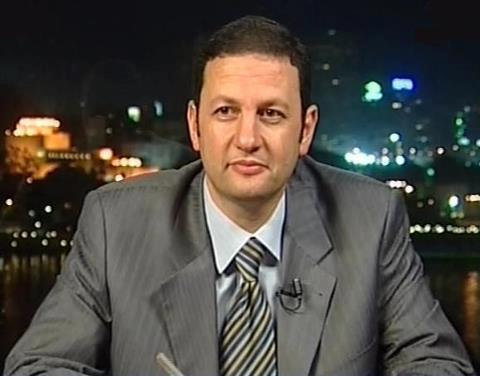
Speaking with an EU parliamentarian I was surprised by their parting question, which was; “is it true that Salafis want to destroy the pyramids? I heard that a Salafi appeared on TV saying he wants to destroy the pyramids.”
I was indeed surprised, that such a non-representative interview produced for shock value and media consumption has reached all the way to Europe and actually been taken seriously.
Obviously Salafis have nothing against the pyramids and it is not even a topic of discussion. The man with a long groomed beard interviewed is unknown to Salafis, let alone the Egyptian public at large. The interview was not taken seriously by most politicians, coming as it did during a period of political clashes and rising tensions with Islamists.
We can probably assume the context surrounding the interview was not conveyed in the news coverage in Europe. Indeed by portraying the context the news value of the story decreases significantly. With accurate reporting, the catchy headlines and absurdity of the whole situation remains only in the minds of those less informed about Egyptian affairs.
Such sensationalism unfortunately paints Egypt in a very negative light. People considering a visit to Egypt may think twice, and potential investors are likely to be convinced to put their money elsewhere, if all the coverage they see about Egypt is pernicious.
Jean Newman Glock is the Global Director for Connoisseur Travel in Washington DC. She writes a blog on the Huffington Post and amde similar remarks on a recent Youtube clip;
“I have been involved in tourism in many ways with Egypt for the past 20 years, it is my favored and is the most wonderful destination on earth. I’ve joined the US business delegation in this visit to find out for myself if Egypt is ready for the return of tourists. I came not certain…. and now I am feeling very positive about the environment I have found, Egypt is open for business, is warm and welcoming.
Unfortunately, the international news perception has been other, and has focused on many things that don’t seem apparent at all when you’re here. There are many positive things that are happening here. I look forward to encouraging tourists to come experience a wonderful Egypt themselves now, but also I encourage the media to remember to report the positive and to remember the warmth Egypt shows the world sharing their civilization.”
Negative reporting of Islamists reinforces what Jean refers to in her US chamber of commerce sponsored visit.
Islamists have not been able to address the bias against them positively. In Egypt all the Islamist run media outlets are produced in Arabic, not a single one broadcasts in any other language.
Good and positive news about Islamists, if produced at all, rarely makes the headlines. The focus is always on the extreme examples that fulfill established biases in the media. It is crucial that media in Egypt, especially those run in English, play a more responsible role and compel themselves to report in a more balanced fashion.
Those who currently run the media empires of Egypt are, at least for the most part, entrepreneurs of Mubarak’s crony capitalism. In the early days of the revolution their TV channels were pushing anti-revolution messages, whether by calling the revolutionaries “thugs” or by invoking the sympathy of Egyptians and asking them to stop the protests in order to avoid “destroying Egypt”. Nowadays much of these resources are focused on defaming and ridiculing Islamists.
Media bias against Islamists is also supported by the way in which Islamists have risen in post-revolution Egypt. Under the old regime “Islamists” did not study university courses associated with working in the media, including mass communication, journalism and political or other social sciences.
This was for the simple reason that for the most part they were automatically rejected for jobs related to these studies. It sufficed that you were a young woman wearing the hijab, or a young man with a neatly trimmed beard, and you would be rejected straight away. This lack of promise in developing a career naturally inclined most students with Islamic tendencies to stay away from those schools.
These careers demand a lot of interaction with the outside world. So if you are kept away from the media, away from the Foreign Service, away from seminars, conferences and discussions that deal with political and cultural dialogue, then you are unlikely to have sufficient experience to present yourself abroad and promote your message through different media channels.
Furthermore, when you have a few bad apples associated with your cause, and yet others who have only a tenuous grasp of engaging in politics positively, then you know you are in bad standing. It will take time before Islamists are competent in representing themselves abroad and getting across their points of view.
In the mean time let us hope the media is not scaring away everyone who wants to spend an enjoyable vacation in Egypt!



